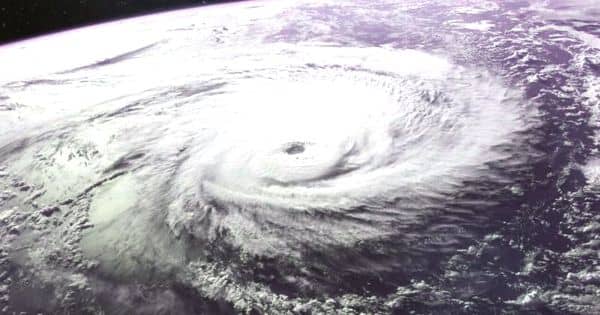Researchers find Climate change is causing Hurricanes to Stay Stronger and Longer
Hurricanes that develop over warmer oceans carry more moisture and therefore take more time to weaken, according to a new study published in the journal Nature. The ocean becomes warm as it absorbs most of the surplus heat from greenhouse gas emissions. With global warming, the temperature of the sea also increased, raising global sea levels because water expands when heated.
Climate change is causing hurricanes that make landfall to take more time to weaken, reports a new study. Many studies have shown that climate change can intensify natural disasters, however, this is the first study to make a clear link between warming oceans and hurricanes that make landfall. Researchers showed that hurricanes that develop over warmer oceans carry more moisture and therefore stay stronger for longer after hitting land. The researchers used a computer to simulate four different hurricanes and set different temperatures for the surface of the sea. This means that in the future, as the world continues to warm, hurricanes are more likely to reach communities farther inland and be more destructive. They found that even though each simulated hurricane made landfall at the same intensity, the ones that developed over warmer waters took more time to weaken.
The researchers showed that hurricanes that develop over warmer oceans carry more moisture and therefore stay stronger for longer after hitting land.
“The implications are very important, especially when considering policies that are put in place to cope with global warming,” said Professor Pinaki Chakraborty, senior author of the study and head of the Fluid Mechanics Unit at the Okinawa Institute of Science and Technology Graduate University (OIST). He said: ‘Hurricanes are heat engines, just like engines in cars. In-car engines, fuel is combusted, and that heat energy is converted into mechanical work.
Many studies have shown that climate change can intensify hurricanes — known as cyclones or typhoons in other regions of the world — over the open ocean. But this is the first study to establish a clear link between a warming climate and the smaller subset of hurricanes that have made landfall.
The scientists tested the link between warmer sea surface temperature and slower weakening past landfall by creating computer simulations of four different hurricanes and setting different temperatures for the surface of the sea.
‘For hurricanes, the moisture taken up from the surface of the ocean is the ‘fuel’ that intensifies and sustains a hurricane’s destructive power, with heat energy from the moisture converted into powerful winds. Once each virtual hurricane reached category 4 strength, the scientists simulated landfall by cutting off the supply of moisture from beneath.
Li explained: “Hurricanes are heat engines, just like engines in cars. In-car engines, fuel is combusted, and that heat energy is converted into mechanical work. For hurricanes, the moisture taken up from the surface of the ocean is the “fuel” that intensifies and sustains a hurricane’s destructive power, with heat energy from the moisture converted into powerful winds.
“These simulations proved what our analysis of past hurricanes had suggested: warmer oceans significantly impact the rate that hurricanes decay, even when their connection with the ocean’s surface is severed. The question is — why?” said Prof. Chakraborty.
Using additional simulations, the scientists found that “stored moisture” was the missing link. The researchers explained that when hurricanes make landfall, even though they can no longer access the ocean’s supply of moisture, they still carry a stock of moisture that slowly depletes. When the scientists created virtual hurricanes that lacked this stored moisture after hitting land, they found that the sea surface temperature no longer had any impact on the rate of decay.
As climate change continues to heat the planet’s oceans and make extreme hurricanes even stronger, their slowed “decay” as detailed in this study could have major implications for inland cities unaccustomed to hurricanes. As ocean waters heat up, cyclones may be able to hold their strength for longer as they move over land, according to a study published this week in Nature.
The increased level of stored moisture also makes hurricanes “wetter” — an outcome already being felt as recent hurricanes have unleashed devastatingly high volumes of rainfall on coastal and inland communities. This research highlights the importance of climate models to carefully account for stored moisture when predicting the impact of warmer oceans on hurricanes. The study also pinpoints issues with the simple theoretical models widely used to understand how hurricanes decay.
The researchers now plan to study hurricane data from other regions of the world to determine whether the impact of a warming climate on hurricane decay is occurring across the globe.














